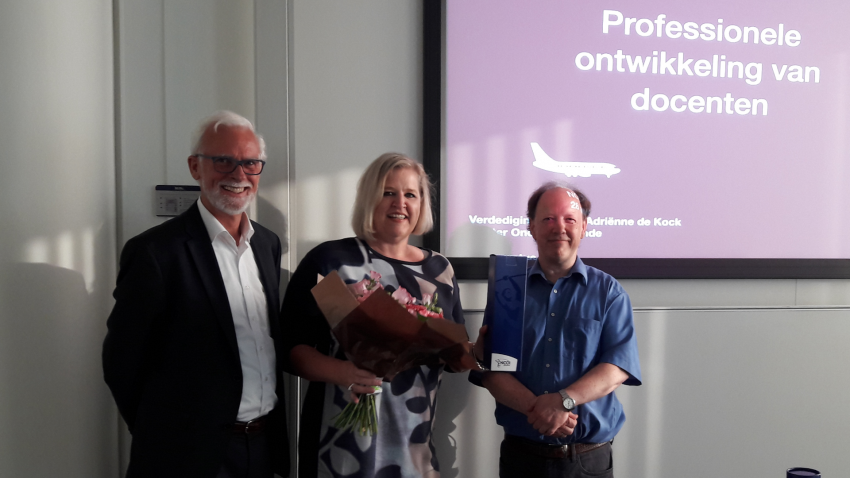My successor as chair holder of the Education and Competence Studies group at Wageningen University, Prof. dr. Perry den Brok, started on October 1. I am happy for him that he assumes his role at a moment in time at which Wageningen University and Research is sky-rocketing. Research and education of the organization are top-notch, and its world-leading reputation is signified by the article ‘This Tiny Country Feeds the World’, in the September-issue of the National Geographic (http://www.nationalgeographic.com/magazine/2017/09/holland-agriculture-sustainable-farming/). Although more critical authors would have told another story about Dutch agriculture, it is true that the Netherlands is a miracle of agricultural productivity. This miracle is attributed by many to the strong knowledge system in the agrifood sector in which the government, the industry, and the knowledge institutes closely cooperate. Called the ‘golden triangle’, agricultural education at all levels, plays an essential role. Without effective education and learning, there would be no such thing as responsible precision agriculture and knowledge farming.
The Executive Board of the University has decided to name the chair of Perry ‘Education and Learning Sciences’, and the chair group will get the same name in due course.
Perry was director of the Eindhoven School of Education at Eindhoven University of Technology.
ECS has posted the following about Perry on its website: ‘During the past years, Perry has been involved in research on learning environments (from primary to higher and vocational education), teacher professional development and teacher learning, and research on Science, Technology, Engineering and Mathematics (e.g. STEM) education. He has also acted as teacher educator, educational consultant, and promotor of various PhD students. Two external PhD students, Hanneke Theelen (Fontys University of Applied Science) and Robert Ovbiagbonhia (Hanze University of Applied Science), will also become part of ECS research (and two more candidates are in progress).
Perry is currently editor of the Learning Environments Research journal, and has been active as chair or board member of several organizations, such as the Dutch Educational Research Association (treasurer, chair of the SIG Teaching and Teacher Education), the SIG Learning Environments of AERA, and EARLI. He has published extensively, more information in this respect can be found at his personal webpage at TU/e (URL: https://www.tue.nl/en/university/about-the-university/eindhoven-school-of-education/about-esoe/staff/detail/ep/e/d/ep-uid/20070578/ep-tab/4/ ) and at Google Scholar (URL: https://scholar.google.nl/citations?user=OU2D-5AAAAAJ&hl=en ).
To some of the ECS staff and trainers he is not new, as they already collaborated with him in national networks. Last year, for example, he also took part in some of the PhD defenses of ECS, as external committee member.’
For me, Perry is also not new. I got to know him from my various international activities. I believe Wageningen University has found an excellent successor for me, I congratulate the search committee, and I wish Perry and the staff of the group lots of success. I am confident that with the new chair the group will reach new heights.

